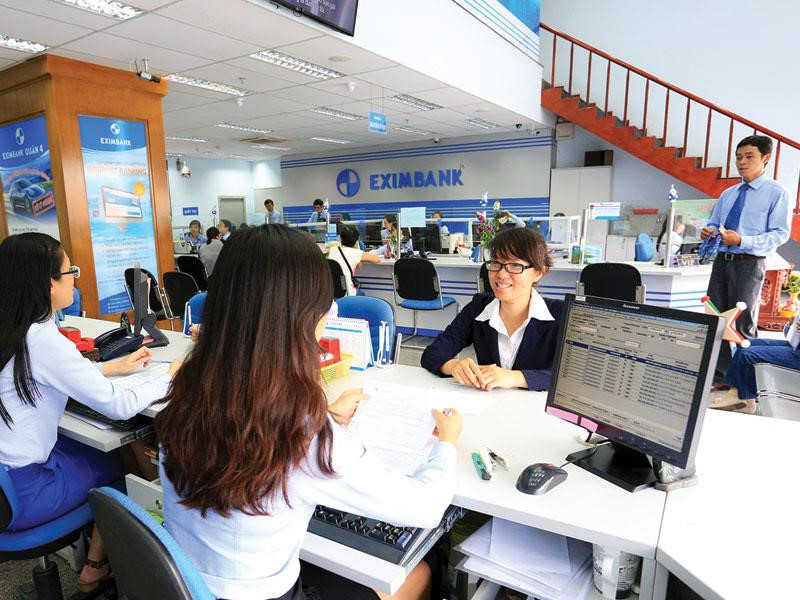Eximbank administers sharp cut to 2016 profit target
 |
According to documents the bank is sending to shareholders before the next extraordinary shareholders’ meeting to be held in August, Eximbank’s new target of 2016 pre-tax profit is VND400 billion ($18 million), significantly less than the VND720 billion ($32.3 million) set before the first and second failed meetings in April and May.
The assets, deposits, and lending targets may also be lowered to VND134 trillion ($6 million), VND108 trillion ($4.8 million), and VND100 trillion ($4.5 million), respectively, compared to the earlier targets of VND142.5 trillion ($6.4 million), VND113.5 trillion ($5.1 million), and VND105.5 trillion ($4.7 million).
In a related development, S&P Global Ratings on July 18 affirmed Eximbank’s ‘B+’ long-term and ‘B’ short-term issuer credit ratings. The outlook on the long-term rating is negative. S&P also lowered the long-term ASEAN regional scale rating of Eximbank to ‘axBB-’ from ‘axBB’, and affirmed the ‘axB’ short-term ASEAN regional scale rating as well as removed the ratings from CreditWatch, where they were placed with negative implications on April 8, 2016.
S&P Global Ratings credit analyst Ivan Tan said the agency affirmed the negative outlook to reflect their view that the bank’s profitability is “unlikely to improve rapidly enough over the next 12 months to offset the accumulated losses following a restatement of financial statements in 2015.”
“The bank’s profits have been falling for the past several consecutive years, amid challenging operating conditions, and its return on assets (RoA) was almost zero in 2015,” he said.
The State Bank of Vietnam (SBV) in October 2015 discovered accounting irregularities at Eximbank. Following the SBV inspection, Eximbank revised the sales profits previously registered/announced, which retrospectively resulted in an accumulated loss of VND817 billion ($36.6 million) in its restated 2015 financial statement.
According to S&P, Eximbank’s aggressive accounting practices could have negative implications on the bank’s reputation and management. Infractions of law and regulation can lead to long-term franchise or reputational damage for the bank, even though the authorities have not imposed penalties or restrictions on Eximbank.
“The negative outlook reflects our view that Eximbank’s accumulated losses and declining profitability will limit significant improvements in its credit profile over the next 12 months,” Tan said.
Eximbank paid zero dividends in 2015, and S&P expects it to preserve capital with a very low pay-out, if any at all, in 2016.
Earlier, Eximbank failed to hold its 2016 annual general shareholders’ meeting for the first time in April because domestic shareholders refused to show up, possibly to protest foreign shareholders’ pushing them out of the Board of Directors. In May, the second meeting ended in chaos after the Board of Directors and shareholders once again failed to find common grounds on the election of additional board members.
The major foreign shareholders of Eximbank include Sumitomo Mitsui Banking Corporation, Mirae Asset Exim Investment, and VoF Investment Limited, a VinaCapital fund. Foreign shareholders currently hold about 27 per cent of the bank’s shares.
What the stars mean:
★ Poor ★ ★ Promising ★★★ Good ★★★★ Very good ★★★★★ Exceptional
Latest News
More News
- Banks roll out God of Wealth Day promotions (February 26, 2026 | 17:10)
- VinaCapital launches Vietnam's first two strategic-beta ETFs (February 26, 2026 | 09:00)
- Banking sector targets double-digit growth (February 23, 2026 | 09:00)
- Private capital funds as cornerstone of IFC plans (February 20, 2026 | 14:38)
- Priorities for building credibility and momentum within Vietnamese IFCs (February 20, 2026 | 14:29)
- How Hong Kong can bridge critical financial centre gaps (February 20, 2026 | 14:22)
- All global experiences useful for Vietnam’s international financial hub (February 20, 2026 | 14:16)
- Raised ties reaffirm strategic trust (February 20, 2026 | 14:06)
- Sustained growth can translate into income gains (February 19, 2026 | 18:55)
- The vision to maintain a stable monetary policy (February 19, 2026 | 08:50)















 Mobile Version
Mobile Version